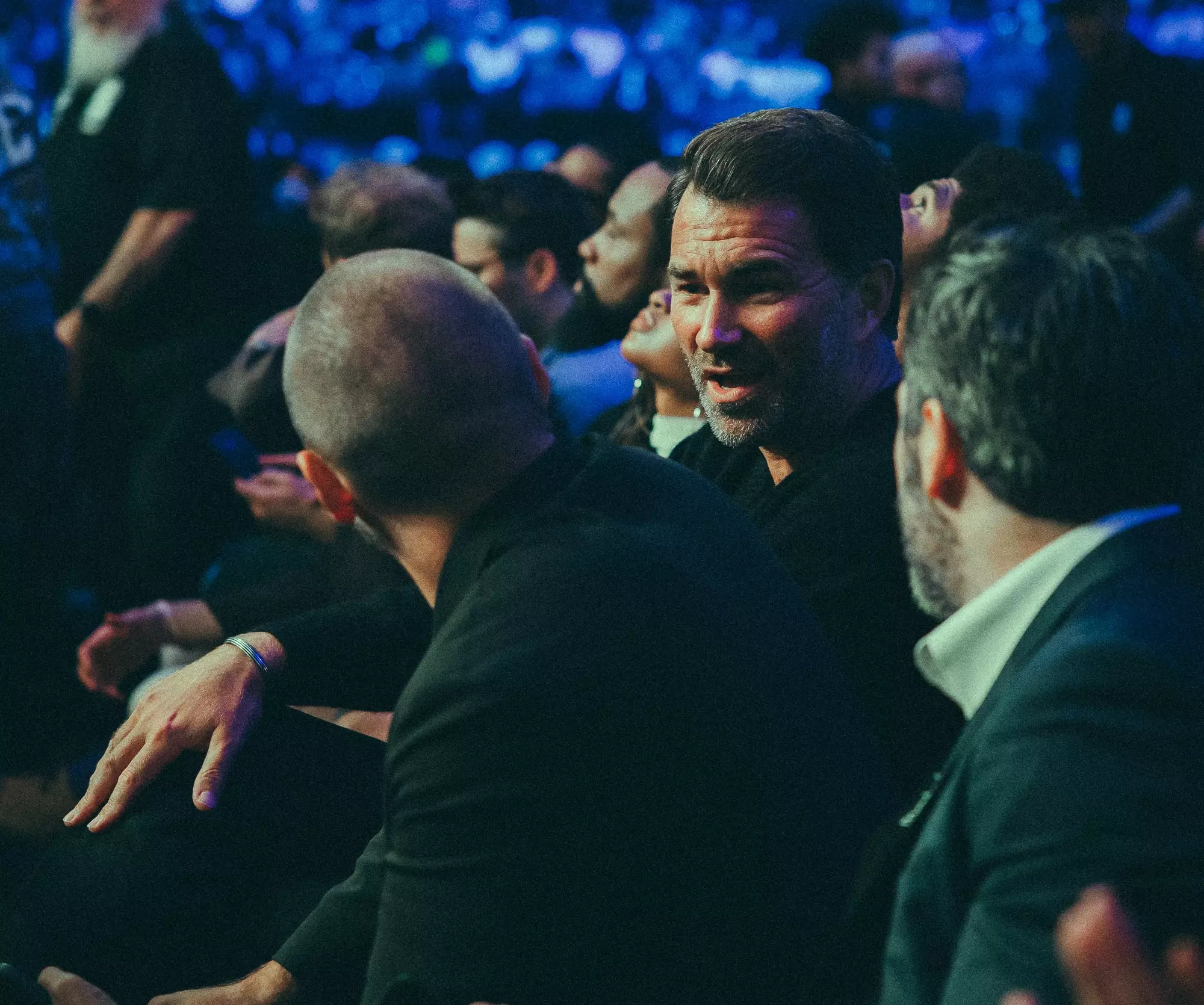In the world of boxing, the aftermath of a bout often holds as much significance as the fight itself. Following IBF welterweight champion Jaron ‘Boots’ Ennis’ convincing victory over Karen Chukhadzhian, the atmosphere was charged with ambition and desperation at the Wells Fargo Center in Philadelphia. Among those keenly observing was 34-year-old Blair Cobbs, who, despite his lackluster history, emerged uninvited at the post-fight press conference, eager to stake his claim. Cobbs’ audacity drew the attention of promoter Eddie Hearn, who promptly offered him a pathway to revitalization through a match against Chukhadzhian—a proposal that posed both opportunities and challenges for Cobbs.
When Hearn addressed Cobbs, he suggested that should Cobbs manage to secure a victory over Chukhadzhian, he would facilitate a “major fight” for him, potentially against names that could reshape Cobbs’ career trajectory—such as Ennis or Conor Benn. This was not merely a fight proposal; it was a lifeline. The dilemma for Cobbs, however, lay in the knowledge of his capabilities and the grim reality of his recent performances. His promising but rocky career, punctuated by a ninth-round knockout loss to Alexis Rocha in 2022, left many questioning his readiness to take on the likes of Chukhadzhian.
With a professional record of 17 wins, 1 loss, and 1 draw, Cobbs dared to envision a future filled with greater prospects. However, the boxing landscape is ruthless—failure to capitalize on Hearn’s offer could mean relegation back to irrelevance. Cobbs’ knack for engaging the audience, coupled with a colorful personality, certainly drew some attention, but these attributes alone would not fortify his place among the elite. Instead, they merely set the stage for high stakes with significant repercussions; a defeat against a formidable opponent like Chukhadzhian could reinforce Cobbs’ status as an underachiever.
For Cobbs, the choice was stark: accept Hearn’s proposed fight or continue in a state of mediocrity. Hearn’s overture meant that the promoter was willing to invest in Cobbs’ potential, something rare as he is not currently ranked among the top contenders by any of the four major sanctioning bodies. As he approaches 35, the sands of time slip away, making the prospect of sustained inactivity perilous. The implications of a setback against Chukhadzhian could be dire; Cobbs risks being written off entirely, seen as a fighter who couldn’t overcome a pivotal fight meant to rejuvenate his career.
The tension surrounding Cobbs can be boiled down to one central theme: the nature of risk in boxing. Accepting Hearn’s fight proposal opens doors not just for personal glory but economic advantages as well. A potential win against Chukhadzhian could lead him into the spotlight of marquee fights generous enough to secure financial stability—perhaps even sufficient to afford a plush residence in affluent locales like The Ridges in Las Vegas. Nonetheless, the lure of such promises must be couched in a sobering understanding of the fight game. Cobbs cannot afford to underestimate an opponent known for resilience.
Ultimately, the collision of opportunities and obligations in Cobbs’ immediate future signifies a crossroads. He has the chance to turn the tide of his career with one decisive fight. In the highly competitive landscape of boxing, each fight presents a fleeting opportunity for redemption that may never return. As Cobbs weighs his options, the clock is ticking—his decision could either launch him into a daring new chapter or plunge him further into obscurity as a fighter forever haunted by “what could have been.” His next move may ultimately define his legacy within the sport. The question remains: will he rise to the occasion, or let yet another opportunity slip away?

